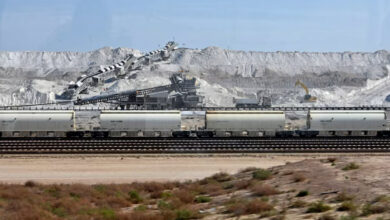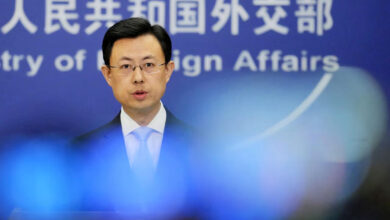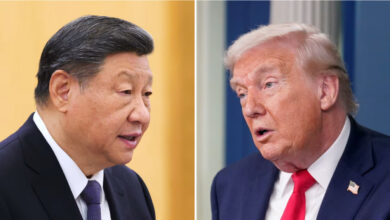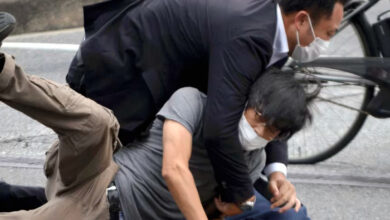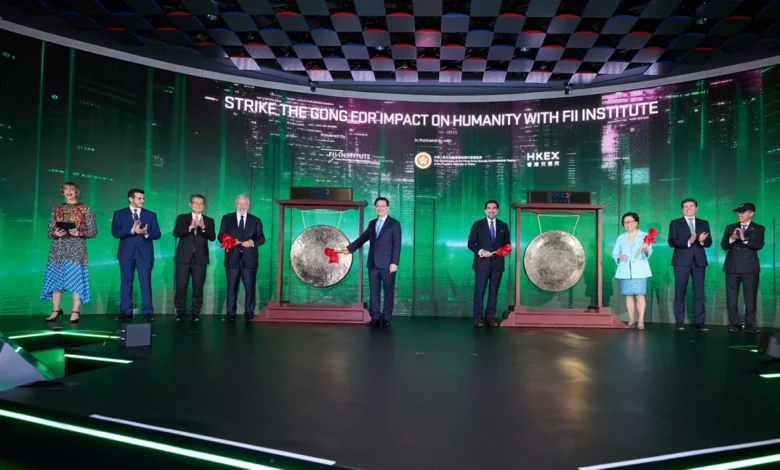
For the first time, Hong Kong’s leader has welcomed Saudi Arabian elites to the city for an investment conference, in an example of how it is embracing new potential business partners as it confronts a slumping economy and geopolitical uncertainty.
In opening remarks on Thursday, Hong Kong Chief Executive John Lee called the gathering “yet another significant step forward, in the deepening [of] ties between Hong Kong and the Middle East, particularly the Kingdom of Saudi Arabia.”
The two-day event was organized by the Hong Kong government, its stock exchange and the Future Investment Initiative (FII) Institute — a nonprofit founded by the Public Investment Fund (PIF), Saudi Arabia’s sovereign wealth fund. The institute hosts an annual event in Riyadh dubbed “Davos in the Desert.”
Hong Kong has aggressively courted Saudi Arabia for more business this year as it works to hedge against US-China tensions, which have led to the greater risk of Western companies reducing their operations in the semi-autonomous Chinese city, said Willy Lam, senior China fellow of the Jamestown Foundation, a US think tank.
He called the summit “a shot in the arm” for Hong Kong’s economy, which he says has suffered from an exodus of foreign talent, decline in property prices and drop in the number of foreign companies using the city as a regional base in recent years.
“Saudi Arabia could be a big prize for Hong Kong,” given the size of its economy and trusted allyship with China, according to Lam. Last year, the two countries signed a strategic partnership agreement.
George Chan, a Shanghai-based global IPO leader for EY, also said the summit was a way for Hong Kong to advance its goal of “diversifying” its economic partnerships amid complex global challenges.
“Additionally, as geopolitics prompts Middle Eastern countries to diversify investments, Hong Kong is an ideal destination given its strength in bridging mainland China, Asia, and global capital flows,” he told CNN.
Market slump
Officials in Hong Kong have good reason to be casting a wider net. In the face of a global slowdown, the city is suffering a drought of initial public offerings (IPOs).
Its IPO market is currently in the midst of its worst year since 2003, according to data provider Dealogic, with just under $4.6 billion in proceeds raised as of early December.
The government is working to change that. In February, Lee traveled to Riyadh, where he met with the CEO of state-owned oil company Saudi Aramco, the world’s third most valuable company, and floated the idea of a listing in Hong Kong, according to a government statement.
Aramco went public in Riyadh in 2019, in what was then the biggest IPO of all time. Chan said “a blockbuster Aramco offering could spark a Hong Kong IPO reawakening, positioning the city as the gateway of choice bridging Middle East titans and Asian ambitions longer-term.”
PIF Governor and FII Institute Chairman Yasir Al-Rumayyan, who also serves as chairman of Aramco, did not mention the prospect of a secondary listing on Thursday.
Asked about the matter during an interview with CNN’s Marc Stewart on Thursday, Laura Cha, chair of the Hong Kong stock exchange, said she could not comment on individual companies, though “we have a healthy pipeline.”
Hong Kong’s bourse has made it easier for such a listing to happen. In September, it added the Saudi stock exchange to its list of recognized exchanges, allowing Saudi-listed companies to apply for a secondary listing in the city.
Last week, Hong Kong also introduced what it billed as Asia’s first exchange-traded fund (ETF) to track Saudi Arabian equities, allowing investors to easily buy shares in the Gulf country’s biggest listed companies.

